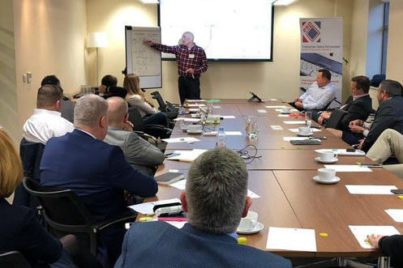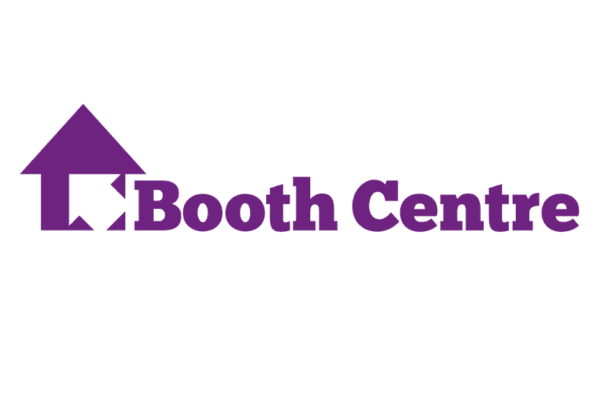
World Class Sales Leader Event – Manchester – Key Takeaways
On Thursday 7th March some of the World Leaders in IT Sales gathered in Manchester to discuss some of the key issues addressing the IT Sales industry today. We heard from experts within the IT Sales world on subjects like:
- Mental health in the workplace
- Reducing ‘no decision’ clients
- Customer Success Management
This was a highly successful and useful event receiving excellent feedback from all attendees.
How can marginal gains reduce the number of ‘no decision’ clients in your sales funnel?
Calum Kilgour and John Bissett, Slingshot Edge
Calum and John from Slingshot Edge are experienced sales professionals and run a consultancy business supporting IT sales leaders. They presented an interactive session (featuring some gambling with chocolate coins) to address the issue of ‘no decision’ and your buyer’s struggle to see why they should choose you rather than your competitor or fixing the problem themselves.
According to research from Sales Bench Marck Index, across the B2B sales industry around 58% of deals end in “No Decision”. Calum and John suggested that this ‘no decision’ is because:
- The buyer feels that sticking with the status quo was a safer option than risking working with a new supplier
- The buyer couldn’t sell the change to rest of the decision making group (on your behalf)
- The buyer can’t see much difference between their options (including addressing the problem in-house)
Everyone in the room agreed, converting some of that 60% of No decisions to sales could make a huge impact on their businesses and their targets.
Calum and John presented the concept of a ‘Cause to Act’ story. These make your buyers realise that they are effectively standing above a sinkhole by not acting. In your ‘Cause to Act’ story a salesperson would need to provide evidence that by staying where they are and doing nothing means the client is guaranteed to lose.
Slingshot Edge suggest sharing a “Cause To Act Story” early in your sales conversations. It should
- Highlight what has changed in your buyer’s world (competition, legislation, trends)
- Amplify the impact of your buyer’s common problems in these changed conditions
- Suggest high-level steps (aligned with your solution) to avoid these company strangling difficulties.
This will open up your buyer, increase the credibility of your seller and create a context for the rest of the discovery process. Forrester research call this the “Buying Vision” and sellers who can do this have a much high win rate than sellers who don’t set out this vision.
A Slingshot Edge client who implemented this approach previously had a one in five conversion rate of first meetings leading to second meetings; Since implementing their ‘Cause to Act’ story 4 out of five their first meetings now convert into a second meeting. Their revenue went from 78M to 118M in 12 months. You can hear their head of Sales Enablement discussing the project here.
Key recommendations:
- Read ‘Thinking Fast & Slow’ by Daniel Kahneman”
- See more on this subject from Calum and John in this recent podcast from “Growth Acument”
- Connect with them on LinkedIn Here. Calum Kilgour John Bissett. Follow the LinkedIn Hashtag #slingshotvids for free tips contained inside scary stories!
Creating a psychologically safe workplace environment for your team.
James Bishop, Salesforce
James joined us to discuss something he is very passionate about. James is a leader at Salesforce but was not presenting the opinion of Salesforce, rather his own thoughts.
After a personal experience that left his young son very unwell in hospital James reassessed his priorities, his wellbeing and the wellbeing of the team he was managing. In his session James addressed the issue of psychological safety in the workplace.
Creating a psychologically safe workplace maximises performance by bringing a sense of purpose and happiness into our career. This in turn improves the mental health of ourselves and our teams naturally improving performance.
The working environment within the sales industry is highly vulnerable to mental health problems due to the high pressure and tendency towards long hours that come with being a sales person. James highlighted several strategies he has come across at a variety of companies that help individuals be their ‘true authentic self’ in their workplace.
One great example is something they have recently implemented at Salesforce. James’ side of the Salesforce business now carry out Personal Plan meetings which cover finance, career and wellness as well as purpose and legacy. By understanding his team member’s 360 goals he found he was able to accelerate their relationship development as well as increase the performance of his team. These personal plans are brought up regularly within 121s so they are constantly being addressed and reworked.
He also discussed the importance of leading from the front when it comes to psychological safety at work. If we’re not walking the talk as the leaders of the company how can we expect the rest of the team to follow us and embrace it.
James has found that developing this culture can also really help to attract talent. The new generation of sales people joining our teams are millennials who have very high expectations of what they will get out of an organisation. This includes mental health support and a cultural focus on work/life balance.
Ultimately James summarised that psychological safety inspires creativity which in turn inspires innovation giving you a competitive advantage. Any sales leaders turning their back to this are making a mistake.
Customer Success Management
Jonathan Legdon
Jonathan Legdon is an experienced CEO and sales leader within the software sector. He has sales in his bones having worked across a variety of sales roles throughout his career and he is passionate about sales strategy. Jonathan joined us to discuss customer success management and why this should be a focus for sales teams in the future.
Customer success is the measure of when a customer achieves their desired outcomes through using your product or service. As salespeople, we want the technology to work, we know the technology will work but it still fails, and when it fails our automatic reaction is to blame the customer. Jonathan claims the question we should be asking in this scenario is ‘Did WE do everything that WE could to make that customer successful?’
We all know that a client who uses our service or product successfully is more likely to renew or upsell in the future. Therefore it should be central to our sales and business strategy.
Through measuring customer success and developing a culture of cultivating customer success we, as sales people, are encouraged to actively work with our customers towards their goals.
Here is how you can measure customer success:
- Partner satisfaction surveys
- Client retention
- Net promoter scores
Jonathan explained that traditional account manager roles haven’t worked historically because they treat accounts as numbers rather than as people. Instead we need to move to a customer success management function. We absolutely know that customer success driven growth does work, but it works most effectively when customer engagement and account management sits within the sales function. Jonathan argued that non-sales people often don’t get the contract details right, can lose value, can leave things out and can create a world of pain for sales teams. Therefore, it’s important that companies accept that non-professional sales people sell badly, and therefore keep these roles within the sales teams.
This opened a lively debate with our delegates of sales leaders and an engaging session of shared experiences and solutions in regards to customer success management.
—
If you have a message that you are passionate about and would like to share with sales leaders from across the UK and Europe we would love to hear from you. Please contact: Paul@enterprisesp.co.uk
For information on future events and to register your interest in attending future events we’d love to hear from you. Please contact: Georgia@enterprisesp.co.uk



